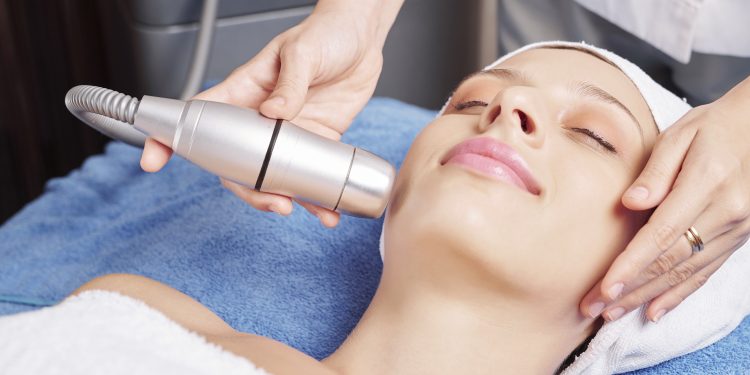Skincare for spot reduction
Skin is the largest organ in our body, and it deserves proper care and attention to maintain its health and appearance. Maintaining clear and healthy-looking skin is a top priority for many people, and one common skin concern is the appearance of spots. Whether caused by hormonal changes, genetics, or environmental factors, spots can be frustrating and difficult to get rid of. However, with the right skincare routine and techniques, spot reduction is possible. In this article, we will discuss some effective skincare tips for reducing the appearance of spots, including the importance of cleansing and exfoliating, using active ingredients, protecting your skin from the sun, and avoiding picking at spots. By following these tips and being consistent with your skincare routine, you can effectively target spots and achieve the clear, healthy-looking skin that you deserve.
Skincare tips for spot reduction
Below are some tips on skincare for spot reduction:
- Cleanse regularly:
Regular cleansing is one of the most important step in skincare routine. Proper cleansing removes dirt, oil, and impurities from the skin’s surface, preventing clogged pores that can lead to the formation of spots. Look for a gentle cleanser that is appropriate for your skin type and use it twice daily, in the morning and at night.
- Exfoliate regularly:
Exfoliation is another key step in a spot-reducing skincare routine. By removing dead skin cells from the surface of the skin, you can promote cell turnover and reveal smoother, brighter skin. However, it’s important to use exfoliating products with caution, as over-exfoliation can cause irritation and damage to the skin. Use an exfoliating product once or twice a week, depending on your skin’s needs.
- Use products with active ingredients:
Certain skincare ingredients are known to be effective in reducing the appearance of spots. These include retinoids, vitamin C, and niacinamide. Retinoids work by increasing cell turnover and reducing the production of sebum, which can contribute to the formation of spots. Vitamin C, a powerful antioxidant that helps to brighten the skin and also helps in reduction of dark spots. Niacinamide is a form of vitamin B3 that can help regulate oil production and improve skin texture.
- Protect your skin from the sun:
Sun damage can cause the formation of spots and make existing spots worse. To protect your skin from the harmful effects of UV rays, wear sunscreen with an SPF of at least 30 every day, even on cloudy days.
- Avoid picking at your spots:
As tempting as it may be, picking at spots can actually make them worse. Picking can introduce bacteria into the spot, leading to infection and scarring. Additionally, picking can cause inflammation that can make the spot last longer and appear more prominent.
- Stay hydrated:
Drinking enough water is important for overall skin health, including spot reduction. When you’re dehydrated, your skin can become dry and dull, which can make spots more noticeable. Develop a routine of drinking at least 8 cups of water daily to help keep your skin hydrated and healthy.
- Get enough sleep:
Getting adequate sleep is important for many aspects of your health, including your skin. Lack of sleep can lead to dark circles and a dull complexion, which can make spots more visible. Develop a habit of spending 7-8 hours sleeping per night. Taking enough sleep can help your skin to become its best.
- Consider using spot treatments:
In addition to using active ingredients in your regular skincare routine, you may also want to consider using targeted spot treatments. These products are designed to be applied directly to individual spots to help reduce their appearance. Look for ingredients like salicylic acid, benzoyl peroxide, or sulfur, which can help dry out spots and reduce inflammation.
- Avoid using harsh products:
While it’s important to use effective skincare products to target spots, it’s equally important to avoid using products that are too harsh or abrasive. These can cause irritation and damage to the skin, which can make spots worse. Look for gentle, non-comedogenic products that are appropriate for your skin type.
- Be mindful of your diet:
What you eat can also has on your skin. Try to incorporate plenty of fruits and vegetables into your diet, as well as foods rich in omega-3 fatty acids, which can help reduce inflammation in the body. Additionally, try to limit your intake of sugary, processed foods, which can contribute to inflammation and skin issues.
Conclusion
Taking care of your skin is important for maintaining its health and appearance, and this includes proper skincare for spot reduction. By following a consistent skincare routine that includes cleansing, exfoliating, using active ingredients, protecting your skin from the sun, and avoiding picking at spots, you can effectively target and reduce the appearance of spots. Additionally, staying hydrated, getting enough sleep, using spot treatments, avoiding harsh products, and being mindful of your diet can all contribute to healthier-looking skin. Remember that skincare is a journey, and it may take time to see results, but by being patient and consistent, you can achieve clear, healthy-looking skin that you can feel confident in.
References - https://www.google.com/url?sa=t&source=web&rct=j&url=https://www.nbcnews.com/select/shopping/what-are-best-skin-care-products-acne-prone-skin-look-ncna1032911&ved=2ahUKEwi1o-zFkcT-AhV6V6QEHY0LCxMQFnoECGgQBQ&usg=AOvVaw1Oo-BaZbs4pH6BTCefQWp2 - https://www.google.com/url?sa=t&source=web&rct=j&url=https://saguaroderm.com/acne-treatment/&ved=2ahUKEwi1o-zFkcT-AhV6V6QEHY0LCxMQFnoECGkQBQ&usg=AOvVaw0r0qQ_nxuBV68GvNrogxa-











Discussion about this post